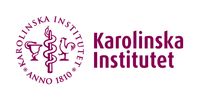Fewer relapses in MS with off-label drug
Patients with multiple sclerosis (MS) treated with the drug rituximab had a significantly lower risk of relapse compared with MS patients receiving standard treatment. This has been shown in a phase 3 clinical trial by researchers at Karolinska Institutet and Danderyd Hospital in Sweden published in The Lancet Neurology. Rituximab is not approved as an MS drug, but has proven to be effective in smaller studies and is therefore largely prescribed “off label”.

The Phase 3 clinical trial is a multicentre study involving 195 patients from 17 hospitals in Sweden newly diagnosed with the most common form of MS, relapsing-remitting MS. Patients were randomly given either rituximab (Mabthera) or standard dimethyl fumarate (Tecfidera) treatment. During the 24-month follow-up, the occurrence of relapses, i.e., a temporary deterioration of the disease state, was investigated.
The results showed that those treated with rituximab had a five-fold lower risk of relapse. Only three out of 98 patients who received rituximab suffered relapses, compared to 16 out of 97 patients who received dimethyl fumarate. Magnetic resonance imaging (MRI) also showed that those who received rituximab had fewer new MS plaques, i.e., areas of damage or scarring in the central nervous system. No increased risk of adverse effects with rituximab was observed.
“The excellent efficacy and low cost of rituximab could make it an attractive first choice for newly diagnosed MS patients, not least in resource-poor areas. But more and larger studies are needed to confirm the drug’s efficacy, long-term safety and cost-effectiveness for MS,” says the study’s first author Anders Svenningsson, adjunct professor at the Department of Clinical Sciences, Danderyd Hospital, Karolinska Institutet and chief physician at the neurology clinic at Danderyd Hospital.
Rituximab is used for a variety of medical conditions but is not approved for the treatment of MS because there has been a lack of data from phase 3 clinical trials. However, the drug has been shown to have a good effect on relapsing-remitting MS and is therefore often prescribed off label, which means that the treating doctor alone assumes responsibility for the treatment.
“Since the patent has expired, there is no incentive from the pharmaceutical company holding the marketing rights to apply for a new indication. But now, in addition to accumulated clinical experience, we also have the documentation that is usually required to apply for an indication. Our study is an important step on the way for rituximab to become an approved MS drug,” says Anders Svenningsson.
The study was funded by the Swedish Research Council. Several of the authors have listed potential conflicts of interest, see the scientific article for a full list. Anders Svenningsson has served on the data safety monitoring board of GeNeuro. Co-author and KI researcher Fredrik Piehl has received research grants from the pharmaceutical companies Janssen, Merck KGaA and UCB, as well as fees for serving on data monitoring committees in clinical trials with Chugai, Lundbeck and Roche.
Publication: “Safety and efficacy of rituximab versus dimethyl fumarate in patients with relapsing-remitting multiple sclerosis or clinically isolated syndrome in Sweden: a rater-blinded, phase 3, randomised controlled trial”. Anders Svenningsson, Thomas Frisell, Joachim Burman, Jonatan Salzer, Katharina Fink, Susanna Hallberg, Joakim Hambraeus, Markus Axelsson, Faiez Al Nimer, Peter Sundström, Martin Gunnarsson, Rune Johansson, Johan Mellergård, Igal Rosenstein, Ahmad Ayad, Irina Sjöblom, Anette Risedal, Pierre de Flon, Eric Gilland, Jonas Lindeberg, Fadi Shawket, Fredrik Piehl, Jan Lycke. The Lancet Neurology, online 13 July 2022, doi: 10.1016/PIIS1474-4422(22)00209-5.
Contacts
For more information, please contact:
Anders Svenningsson, adjunct professor
Department of Clinical Sciences, Danderyd Hospital, Karolinska Institutet, Sweden
Phone: +46 70 241 58 52
Email: anders.svenningsson@ki.se
Images

Karolinska Institutet (https://ki.se/en) is one of the world’s leading medical universities. Our vision is to advance knowledge about life and strive towards better health for all. Karolinska Institutet accounts for the single largest share of all academic medical research conducted in Sweden and offers the country’s broadest range of education in medicine and health sciences. The Nobel Assembly at Karolinska Institutet selects the Nobel laureates in Physiology or Medicine.
Subscribe to releases from Karolinska Institutet - English
Subscribe to all the latest releases from Karolinska Institutet - English by registering your e-mail address below. You can unsubscribe at any time.
Latest releases from Karolinska Institutet - English
Using social media may impair children’s attention8.12.2025 06:01:00 CET | Press Release
Children who spend a significant amount of time on social media tend to experience a gradual decline in their ability to concentrate. This is according to a comprehensive study from Karolinska Institutet, published in Pediatrics Open Science, where researchers followed more than 8,000 children from around age 10 through age 14.
POTS common in patients with long COVID3.10.2025 11:33:37 CEST | Press Release
A new study from Karolinska Institutet in Sweden shows that an unusual heart rhythm disorder, POTS, is particularly common in people with long COVID. The majority of those affected are middle-aged women. The study is published in the scientific journal Circulation: Arrhythmia and Electrophysiology.
Simple test can predict risk of severe liver disease29.9.2025 09:00:00 CEST | Press Release
A new study from Karolinska Institutet, published in the scientific journal The BMJ, shows how a simple blood analysis can predict the risk of developing severe liver disease. The method may already start to be applied in primary care to enable the earlier detection of cirrhosis and cancer of the liver.
Press invitation: Announcement of the Nobel Prize in Physiology or Medicine 202523.9.2025 13:00:00 CEST | Press Invitation
The Nobel Prize in Physiology or Medicine 2025 will be announced on Monday October 6 at 11.30 am CEST (at the earliest).
How mutations in bodily tissues affect ageing20.8.2025 11:00:00 CEST | Pressmeddelande
Two new studies from Karolinska Institutet in Sweden have investigated how mutations that occur in muscles and blood vessels over time can affect ageing. The studies, which are published in Nature Aging, show that such mutations can reduce muscle strength and accelerate blood vessel ageing. The results can be of significance to the treatment of age-related diseases.
In our pressroom you can read all our latest releases, find our press contacts, images, documents and other relevant information about us.
Visit our pressroom